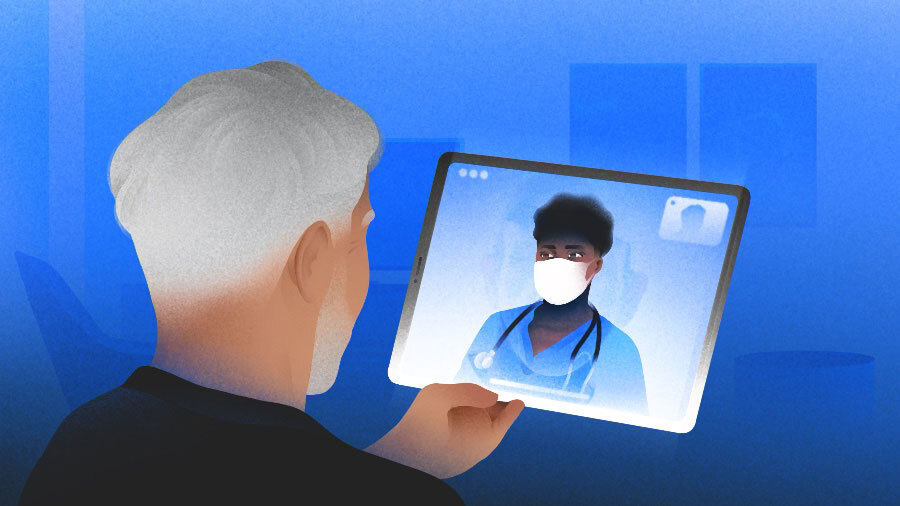Digital Health Startups Exploded During COVID – A Playbook For Tougher Times Ahead

Digital Health Startups Exploded During COVID – A Playbook For Tougher Times Ahead Guest Author
By Robert Krayn
COVID proved how indispensable telehealth is to mental health care. Nearly 40% of American adults reported anxiety or depression symptoms in 2021, up from 10% in 2019. Virtual care was crucial in treating the mental health of millions of Americans and making clinical expertise more accessible nationwide.
Search less. Close more.
Grow your revenue with all-in-one prospecting solutions powered by the leader in private-company data.
And while society regains some semblance of normalcy, data shows many patients intend to continue using telehealth for their mental health care. In fact, psychiatry remains the only health specialty in which the percentage of virtual care bookings remains higher than peak pandemic booking levels.
A once-in-a-lifetime opportunity to innovate behavioral health
The current state of flux gives us the rare opportunity to build on telehealth successes and learn from areas where access to care fell short. It offers a moment to construct a better path forward for the entire mental health care system.

The market has confirmed that anyone can build a booking platform. But the key differentiator that sets an innovative health care company apart is the visible participation of physicians.
Startups, in particular, succeed when they have clinical experts as founders, in the C-suite, and on staff who understand that everything centers around the quality of care. Their presence ensures consistency in treatment, medication management and the focus on improved patient outcomes. That focus on outcomes is what keeps patients, providers and payors coming back. And that’s good for people and for the health care industry.
Green flags to look for in a digital health company
The pandemic-strained market reinforced the notion that you can’t be Uber for mental health care outside of low-acuity populations. (Read: patients with easy-to-meet medical needs that don’t require a physician’s care or expertise.) That model may succeed in business, but it’s not viable in pursuit of solving America’s mental health crisis. And after two years of data, tightened regulations and consumer scrutiny, we have a greater understanding of what’s been most effective in the market.
A few questions to consider: Does the company refer to people as patients instead of customers or users? Do they prioritize hiring high-quality providers over a laser focus on patient acquisition? Do they concentrate on solving the problem for each part of the ecosystem (payors, providers and patients) in tandem? Is a clinical leadership structure in place to oversee the company’s dedication to improved patient outcomes? Is the company staffed with full-time W-2 employees or independent contractors?
If the answer is a resounding yes to some or all of the above, then it’s likely the startup is a health care provider and not a booking platform with a sleek look and additional bells and whistles.
Long-term vision is the answer
When incentives other than the quality of care become the top priority, an hour’s intake drops to 20 minutes, follow-up appointments are skipped, and subscriptions are automatically shipped.
Then you begin to see startups that are supposed to be providing care with their logos on prescription bottles, potentially creating misaligned incentives. Ultimately, you get a race to the bottom where patients, payors and providers lose out as ethical guardrails and regulatory lines are blurred.
Differentiating only on price or brand is how Airbnb or Lyft compete. A behavioral health care startup should differentiate on quality of care.
Payors and insurers are embracing digital health care companies focused on high-quality care led by physicians because it works. We’re seeing several global corporations making significant investments in directly providing care. Walgreens made a $5.2 billion investment in VillageMD, a massive physician organization. Amazon acquired primary care physician powerhouse, One Medical, and CVS acquired 10,000-clinician strong provider group Signify Health.
A few years into the pandemic, national and global corporations are betting on physician-led networks’ long-term vision and success to move the needle in digital health care.
Startups are in a prime position to support that vision with mental and behavioral health innovation. But they need to shape business models around the quality of care, rather than price or brand, and attract top clinical talent to truly advance America’s mental health care system.
Robert Krayn is the co-founder and CEO of Talkiatry, a leading provider of high-quality, in-network psychiatric care and one of the largest employers of psychiatrists in the United States. Prior to co-founding Talkiatry, Krayn spent five years as vice president and senior analyst at an investment management firm.
Illustration: Dom Guzman

